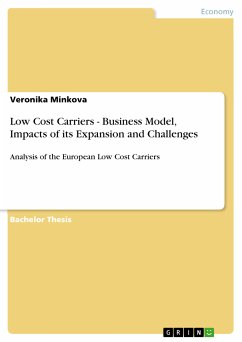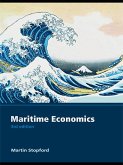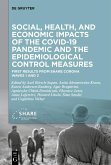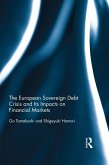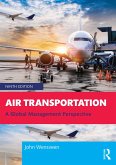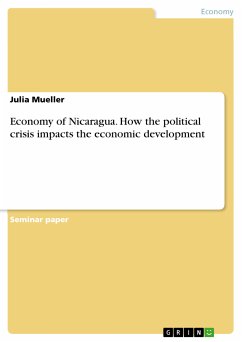Bachelor Thesis from the year 2009 in the subject Economics - Micro-economics, grade: 1,3, Furtwangen University; Villingen-Schwenningen, language: English, abstract: Across a wide range of industries traditional market leaders are threatened by low price competitors. These low price firms are steadily eroding the profit margins and market share of their more established rivals. A vivid example from aviation is the Low Cost Carriers. Beginning in the North America and spreading to Europe, the airline passenger market has witnessed a growing intensity in price-based competition. This intensified competition has been facilitated by policy deregulation initiatives until the emergence of the phenomenon Low Cost Airlines. European Low Cost Airlines have changed people's leisure and travel habits, opening up direct services between city pairs that were not available before. The present thesis aims at analysing the European Low Cost Carriers (LCCs) business model from the perspective of its rapid expansion on the air travel market. In conjunction with the liberalisation of commercial aviation the LCCs' impacts on the European community have been identified in line with the sustainable transport concept recognized as a common goal in the two European Commission's strategic documents: Lisbon Agenda and European Sustainable Development Strategy. The European low cost model is examined in terms; its business model and strategic positioning; the LCCs' positive and negative impacts after its rapid growth; the sector dynamics and its long term sustainability. This LCC multi-dimensional view imposes the main questions of the current work in search for broad analysis of the LCCs trend: "What are the essential characteristics of the LCCs business model?";" How it affects the EU community?"; and "What driving forces stand behind the LCCs model?". The thesis sets itself the following sub-objectives and attempts to answer their corresponding questions: - Overview of the European civil aviation industry prior deregulation (until 1988): How the industry was regulated and by whom? - Tracing the European air travel industry's liberalisation: What kind of regulatory changes have been introduced in European civil aviation after 1988? - Consequences of the deregulation processes on the air travel market: What were the outcomes of the air transport industry's liberalisation and prerequisites for LCCs emergence? - Introduction of the first European LCCs: How the European LCCs emerged? - Analysis of the LCCs competitive and cost advantages: What are the LCCs' cost advantages and their determinants? [...]
Dieser Download kann aus rechtlichen Gründen nur mit Rechnungsadresse in A, B, BG, CY, CZ, D, DK, EW, E, FIN, F, GR, HR, H, IRL, I, LT, L, LR, M, NL, PL, P, R, S, SLO, SK ausgeliefert werden.

